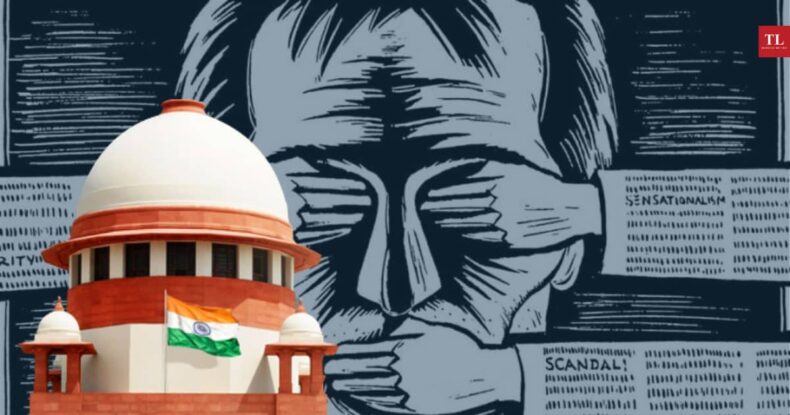The Centre hinted to the Supreme Court on Monday that during the winter session of Parliament, “some alteration may” be made to the sedition legislation from the British era, which administrations frequently abuse against critics and political opponents.
“Something could occur during Parliament’s winter session… There may be some change. A bench presided over by the Chief Justice of India U.U. Lalit was told by attorney general R. Venkatramani that there was no need to be concerned about the current interim order. Justices S. Ravindra Bhat and Hima Kohli were on the bench.
All ongoing legal actions nationwide involving the contentious sedition statute were halted “until further instructions” on May 11 by a previous bench led by the country’s then-Chief Justice of India, N.V. Ramana.
While the aforementioned law was considered by the Union government, the bench had also expressed “hope” that the states and the Centre “would refrain from initiating any FIR, continuing any inquiry, or using any coercive steps by invoking Section 124A of the IPC.”

Sedition law in India
Section 124A of the Indian Penal Code (IPC) was enacted in 1890 to include the offense of sedition. Section 124A of India’s Penal Code, which criminalizes “bringing, or attempting to bring, into hate or contempt, or inspire disaffection towards, the Government,” defines “disaffection” as including “disloyalty and all feelings of animosity,” and carries a maximum sentence of life in prison.
As a result of its usage to silence dissenting speech, notably on social media, it has since been under significant public criticism. The British government heavily relied on sedition laws throughout its colonial era to suppress dissent and imprison freedom fighters like Mahatma Gandhi and Bal Gangadhar Tilak. However Sedition laws were eliminated in the UK in 2009, but usage is increasing in India.
The 1962 decision is being challenged in several cases, citing more recent rulings that have expanded the definition of fundamental rights and later-evolved concepts.
Examinable issues include the ‘chilling impact’ that laws may have on free speech as well as the ‘overbroad’ and ‘vague’ definition of sedition that makes both provocative and innocent remarks or writings equally subject to prosecution.
The government acknowledged in Parliament in 2016 that the concept of sedition is overly broad and needs to be revised. In 2018, the Law Commission also published a consultation paper that stated, “In a democracy, singing the same tunes all the time is not a test of patriotism.
People should be free to express their love for their nation in whichever way they want. The possibility of its abuse can be reduced by establishing new regulations and safety measures, but it will be more beneficial if Section 124A is completely repealed.

The petition demands reconsideration of sedition law
Several petitions asking for the provision to be quashed were being heard by the top court. The petitions had been submitted by people, organizations, and civil liberties activists.
Recent cases demonstrate that sedition is used for three political purposes: to quell criticism and opposition to specific government policies and initiatives, to criminalize dissenting viewpoints from human rights advocates, attorneys, activists, and journalists, and to settle political scores, sometimes with communal overtones.
This led to a demand for reconsideration of sedition law.
The People’s Union for Civil Liberties (PUCL), the Editors Guild of India, Major General (Retd) S.G. Vombatkere, and former Union minister Arun Shourie have all filed petitions opposing the penal provision.
The petitions claim that the regulation restricts free expression, a basic right, and has a “chilling effect” on free speech.
The Centre promised to review the sedition law
At the hearing on Monday, CJI Lalit obtained a promise from Venkatramani that the government will follow the May 11 ruling notwithstanding the Centre’s request for an adjournment so that Parliament could review the issue.
R. Venkataramani, the attorney general, argued that the subject is currently capturing the attention of the appropriate authorities by the directives given by this court in an order dated May 11, 2022. Additionally, he requested that more time be given so the administration can take the necessary actions.
Additionally, it took note of a few additional petitions on the subject and sent letters to the Centre requesting a response within six weeks.

In the historic ruling issued on May 11, the court ordered both the Union and state governments to refrain from filing any new cases citing the controversial statute until the Centre had finished its promised examination of the colonial artifact.
Additionally, it had ordered that all investigations, trials, and other actions under the Sedition Act be suspended nationwide and that anyone in custody on sedition-related accusations might apply for bail.
Centre assurance to the supreme court
The CJI then gave the following instruction: “Mr. The learned attorney general, Venkatramani, claims that the matter is still capturing the attention of the appropriate authorities despite the directives given by this court in an order of May 11, 2022. He requests that more time be given so the government can take the necessary actions.
“He assures the court that given the interim directions issued by this court dated May 11, 2022, all interests and concerns expressed by counsel stand protected and as such, there would be no prejudice to anyone at this stage. At his request, we adjourned the matter to the second week of January 2024.”
This law is already being thought about by the Supreme Court. If parliament does not take action, the Supreme Court would have to decide whether the law is constitutional and ensure that India complies with international human rights law, which the sedition statute blatantly transgresses.
Sedition law: Supreme Court for hold till review
Opposition Slams PM Modi on Sedition Law After SC Hearing













